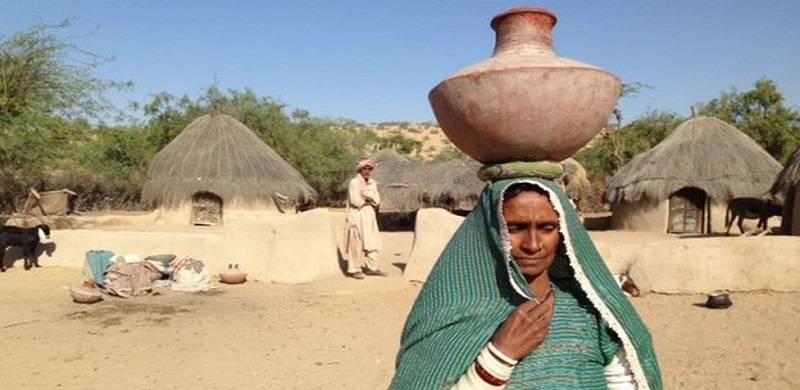
Judicial Magistrate of Nagarparkar Judge Syed Karam Ali Shah has summoned officials to explain the closure of several costly reverse osmosis (RO) water treatment plants in the Parkar region of the Thar desert in Sindh, despite a severe water crisis in the area.
Eighty-six RO plants had been installed in Nagarparkar, as part of the Sindh government's initiative in 2015 to build 750 RO water purification plants in Tharparkar to ameliorate the water crisis there. The project was estimated to cost $33 million. However by 2020, only half of the RO plants had been built, of which at least 70 per cent were found to be dysfunctional.
The application regarding the RO plants in Nagarparkar was filed by by Shah Mohammad Mahar and Mohammad Arif Khoso, who had approached the court to take action against those responsible for the unavailability of water in their region.
Residents stated that the facilities are nonoperational due to misappropriation of funds, corruption and embezzlement. As a result, women are forced to travel over three kilometers to fetch water, spending anywhere from three to five hours on the venture. In 2018 alone, over 500 children died due to malnutrition and disease related to the water drought.
The civil judge on Monday issued notices to appear to various officials including authorities from Public Health Engineering Department, the director of the Sindh Coal Authority, District Health Officer (DHO) Tharparkar, Assistant Director Environment, the Assistant Commissioner, a town officer, as well as representatives from Oslo Solution, a private company.
Previously, the Public Health Engineering Department had acknowledged that only six of the 86 RO plants in Nagarparkar were currently operational because of issues with the tube wells. Of the broken water plants, 61 are slated to be repaired, while repairs for 23 have not been formally registered yet. The Department said that it would need additional funds from the Sindh government for the repairs.
In its statement, the Department reported that most of the plants had been installed by the Government of Sindh's Special Initiatives Department, while six had been installed by the Sindh Coal Authority (SCA).
The SCA is bound to serve community welfare by provincial legislation in the Sindh Coal Mining Concessions Rules 2021. Rule (13)(c) states that the SCA must take preference to locals in employment to educate locals for technical expertise for enhancement of efficiency in skills, as well as complete environment impact assessments and corporate social responsibility (CSR). Rule(89)(b) says that companies shall make contributions to the government for the benefit and well being of the local population.
The installation of RO water plants in the region has been controversial from the start, with experts claiming that RO plants are inappropriate for the inhospitable Thar desert. Experts say simpler, less costly interventions would be more sustainable, such as canals or rain-ponds.
Despite its water scarcity, the Thar region is home to various mineral desposits, including coal, clay, granite and salt. It is a destination for religious and environmental tourists, who flock to the region for its historical and geographical marvels.

